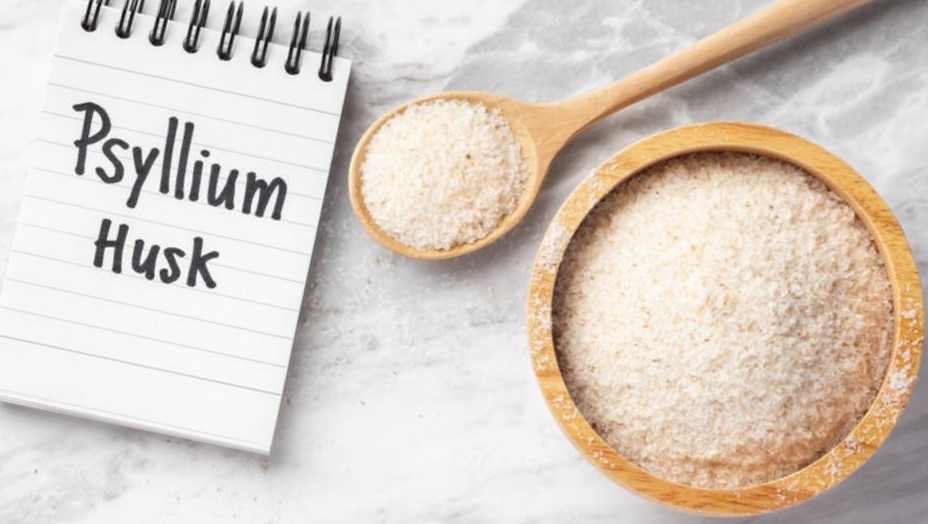When it comes to managing weight after bariatric surgery, one of the often overlooked but highly effective strategies is incorporating psyllium husk fiber into the diet. This natural, plant-based fiber offers multiple health benefits, particularly for those navigating the complexities of post-surgery life. In this guide, we’ll explore the importance of psyllium husk for bariatric patients, how it aids in weight loss, and practical tips for integrating it into your daily routine.
What is psyllium husk?
Psyllium husk is a type of soluble fiber derived from the seeds of the Plantago ovata plant. Unlike other fibers that can be gritty or harsh, psyllium is gentle on the stomach and highly effective at absorbing water, forming a gel-like substance that helps regulate bowel movements and maintain digestive health. This characteristic is particularly beneficial for bariatric patients who often struggle with digestive issues such as constipation or irregular bowel movements.
Beyond its digestive benefits, psyllium husk has a unique ability to promote a feeling of fullness, which can be incredibly valuable for those looking to control their appetite and manage portions. For bariatric patients, maintaining a sense of satiety is crucial for adhering to the dietary guidelines that support weight loss and overall health.
The role of psyllium husk in weight loss post-bariatric surgery
After bariatric surgery, patients are on a new path where managing food intake, digestion, and nutrient absorption becomes a top priority. Psyllium husk can play a key role in this journey. Here’s how:
- Appetite Control: The soluble fiber in psyllium husk expands in the stomach, creating a feeling of fullness. This can help reduce overall calorie intake without the discomfort associated with many weight loss aids.
- Regulating Blood Sugar Levels: Psyllium slows the digestion of carbohydrates, which helps prevent spikes in blood sugar. This is particularly important for bariatric patients who need to manage their energy levels and avoid rapid changes in blood glucose.
- Improving Bowel Regularity: Constipation is a common issue post-surgery due to changes in diet and reduced stomach size. Psyllium’s gel-like consistency helps soften stools and promotes regular bowel movements, alleviating discomfort without the need for harsh laxatives.
- Supporting Heart Health: Psyllium has been shown to help reduce cholesterol levels, which is an added benefit for bariatric patients who often need to monitor cardiovascular health as part of their weight loss strategy.
How psyllium husk improves digestion in bariatric patients
Bariatric surgery, whether it’s a gastric sleeve, gastric bypass, or another procedure, alters the digestive system in a way that requires careful management of dietary choices. Psyllium husk offers a gentle yet powerful solution for improving digestion:
- Gentle on the Digestive Tract: Unlike some fibers that can be harsh and cause bloating, psyllium is known for being gentle and effective, making it ideal for the sensitive digestive systems of post-surgery patients.
- Enhances Nutrient Absorption: By regulating bowel movements and maintaining a balanced gut environment, psyllium husk helps ensure that the nutrients from food are properly absorbed, which is essential for maintaining health after surgery.
- Reduces Gastrointestinal Discomfort: Many bariatric patients experience gas, bloating, or other gastrointestinal issues. Psyllium husk can help mitigate these symptoms, making the post-surgery dietary adjustment smoother.
Dosage: Recommended intake of psyllium husk for bariatric patients
It’s important for bariatric patients to introduce psyllium husk gradually into their diet to allow the body to adjust. Here are some general guidelines:
- Start Small: Begin with ½ teaspoon of psyllium husk mixed in water, juice, or smoothies, and gradually increase to 1-2 teaspoons as tolerated. Always follow it with a full glass of water to help it expand and do its job effectively.
- Frequency: It’s typically recommended to take psyllium once or twice daily, preferably before meals to help control appetite and improve digestion.
- Consistency Matters: To see the best results, consistency is key. Regular intake helps maintain bowel regularity, supports weight management, and enhances overall digestive health.
Always consult with a healthcare provider before starting psyllium husk, especially if you’ve recently undergone bariatric surgery, to tailor the intake to your specific needs.
Precautions and contraindications of psyllium husk post-bariatric surgery
While psyllium husk is generally safe, it’s important to be mindful of certain precautions:
- Hydration is Key: Psyllium absorbs water, so it’s crucial to stay hydrated. Inadequate water intake can lead to choking or intestinal blockage, particularly in those with altered digestive anatomy.
- Potential Interactions with Medications: Psyllium can interfere with the absorption of certain medications if taken simultaneously. To avoid this, take psyllium at least two hours before or after your medications.
- Allergies and Sensitivities: Though rare, some individuals may have allergic reactions to psyllium. Symptoms like itching, rash, or difficulty breathing should prompt immediate medical attention.
Practical tips for incorporating psyllium husk into your post-surgery diet
Integrating psyllium husk into your daily diet doesn’t have to be complicated. Here are some easy ways to get started:
- Add to Smoothies: Blend psyllium husk into your morning smoothie to boost fiber without altering the taste.
- Mix with Yogurt or Oatmeal: A small amount of psyllium can be mixed into yogurt or oatmeal, making it a convenient way to enhance fiber intake.
- Baking with Psyllium: Psyllium husk can also be used as a binding agent in gluten-free baking, adding a boost of fiber to muffins, breads, or pancakes.
- Drink with Water: The simplest way is to mix psyllium with water and drink it quickly, followed by another glass of water to aid digestion.
Comparing psyllium husk with other fiber sources for bariatric patients
Not all fibers are created equal, and for bariatric patients, psyllium husk stands out for several reasons:
- Versatility: Psyllium can be easily added to a wide variety of foods and drinks, unlike other fibers that may have more restrictive uses.
- Effectiveness: Its unique gel-forming properties make it particularly effective at improving digestion and promoting satiety compared to other fibers like wheat bran or inulin.
- Gentle on the Stomach: Unlike some fibers that can cause bloating or gas, psyllium’s gentle action makes it well-suited for sensitive digestive systems.
Best fiber supplements post bariatric surgery
For bariatric patients, choosing the right fiber supplement can make a significant difference in digestive health and weight management. Psyllium husk is a standout option, but it’s not the only one available. Here are some of the best fiber supplements to consider:
- Psyllium Husk: Known for its gentle yet effective gel-forming properties, psyllium husk is ideal for regulating bowel movements and supporting weight loss. Its ability to expand in the stomach helps control hunger without causing excessive bloating.
- Methylcellulose (Citrucel): This non-fermentable fiber is less likely to cause gas and bloating, making it a great alternative for those sensitive to other fibers. It aids in regularity and can be a good option for post-surgery dietary needs.
- Inulin: Derived from chicory root, inulin is a prebiotic fiber that supports gut health. However, it can cause gas in some individuals, so it’s best to introduce it slowly.
- Wheat Dextrin (Benefiber): A soluble fiber that dissolves completely in water, making it easy to incorporate into drinks and meals. It’s a gentle option for maintaining regularity, though it doesn’t have the same appetite-suppressing effects as psyllium.
- Glucomannan (Konjac Root): Known for its high water absorption, glucomannan is another effective fiber supplement for weight management. It’s best taken with plenty of water and should be introduced gradually to avoid digestive discomfort.
Each supplement offers unique benefits, and it’s essential to find one that fits your dietary needs and personal tolerance. Consulting with a healthcare provider can help determine which supplement is best suited for your post-surgery journey.
Best high fiber foods after bariatric surgery
In addition to supplements, incorporating high-fiber foods into your diet is a great way to naturally enhance your fiber intake. Post-bariatric surgery, it’s important to choose foods that are easy to digest and align with your dietary restrictions. Here are some of the best high-fiber foods for bariatric patients:
- Oats: A great source of soluble fiber, oats can help regulate cholesterol levels and improve heart health. They’re easy to incorporate into a bariatric-friendly diet as oatmeal or added to smoothies.
- Avocado: High in fiber and healthy fats, avocados are gentle on the digestive system and provide a creamy texture that’s easy for bariatric patients to consume. They also add valuable nutrients like potassium and vitamins.
- Berries: Blueberries, raspberries, and blackberries are packed with fiber and antioxidants. They’re low in sugar compared to other fruits, making them a perfect snack or addition to yogurt and oatmeal.
- Chia Seeds: These tiny seeds are a powerhouse of fiber, omega-3 fatty acids, and protein. They can be soaked and added to smoothies, yogurt, or used in puddings for a fiber boost.
- Legumes: Lentils, black beans, and chickpeas are excellent sources of fiber and plant-based protein. They can be added to soups, stews, or salads for a filling and nutritious meal.
- Leafy Greens: Spinach, kale, and collard greens are not only high in fiber but also rich in vitamins and minerals. They can be easily blended into smoothies or lightly sautéed as a side dish.
Integrating these foods into your diet helps diversify your fiber sources and provides additional nutrients essential for your overall health. For bariatric patients, maintaining a balanced intake of fiber from both supplements and food is key to achieving long-term digestive wellness.
Benefits of psyllium husk for weight loss and digestion
For bariatric patients, incorporating psyllium husk into their diet can be a game-changer. Its ability to promote fullness, regulate digestion, and support overall health makes it an invaluable addition to the post-surgery journey. With mindful integration and proper guidance from healthcare professionals, psyllium husk can help bariatric patients achieve their weight loss goals and maintain long-term digestive health.









